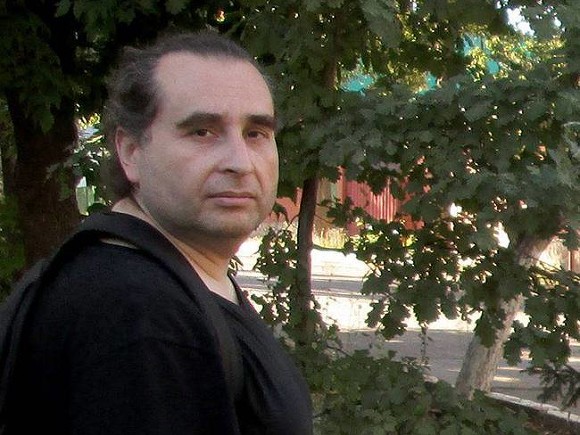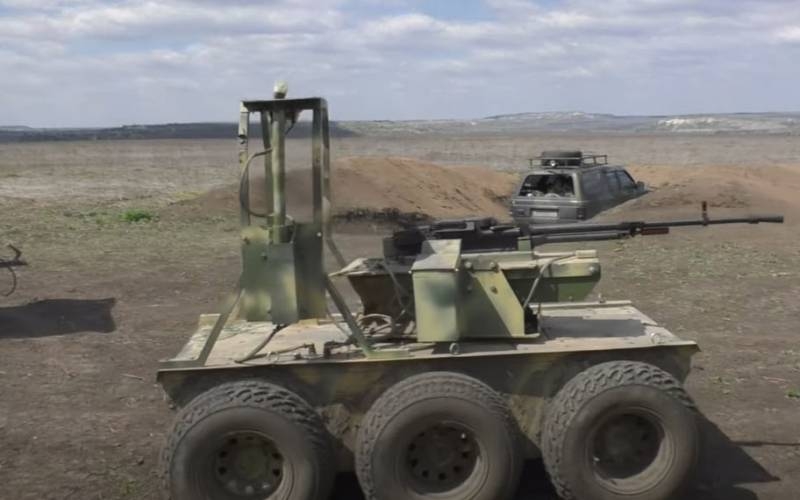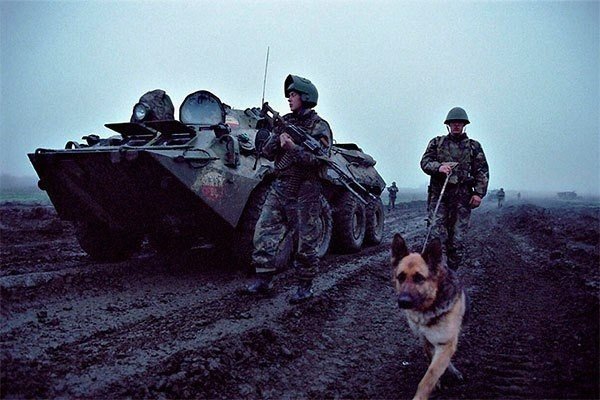
Reports, that on the eve in the north of Syria as a result of rocket fire, two Turkish special forces were killed and three more were injured, caused a harsh reaction from Turkish President Recep Tayyip Erdogan. Promising to "eliminate the threat", Turkish leader said: “Attacks on our military and the latest attacks by terrorists in Syria (I mean the Kurdish armed groups, — „Rosbalt“) overflowed our patience ".
Considering, that the president of Turkey has a reputation for being human, who does not throw words to the wind, easy to guess, that in the near future another offensive by Ankara on the Kurdish regions in the north-east of the Syrian Republic is possible.
About, Are Erdogan's threats a consequence of agreements, perhaps, achieved at his recent meeting with Russian President Vladimir Putin in Sochi, and how the US might react to a new Turkish offensive in Syria, supporters of the Kurds, an orientalist told the Rosbalt observer Mikhail Magid.
- How serious are Erdogan's threats against the Syrian Kurds??
- The situation in northern Syria is now really aggravated. Lives there 3-4 million people, most of whom are Kurds. An autonomous Kurdish administration is, actually, local government. She is associated with the Kurdistan Workers' Party (PKK) and its local branch - the Democratic Union party, who control a large region in the north and northeast of the country.
Since the PKK is waging a guerrilla war for autonomy or state independence on the territory of Turkey itself (lives there 20 million Kurds), then the Turkish military leadership considers the PKK-controlled areas in northern Syria and Iraq as areas, where their enemy gets resources and where he replenishes his armed forces. At the same time, the leadership of the 50-thousandth SDF army (Syrian democratic forces, also dominated by Kurds), controlled by professional officials and PKK officers.
Its main oil reserves are located in the north of Syria., there are also large crops of wheat, as well as large hydraulic structures, power generation, which allows the PKK to ensure a fairly stable governance of this region.
However, officially the PKK does not claim today for an independent Kurdish state in Turkey and Syria, it will be satisfied with local autonomy or federalization. But Erdogan's regime is not ready to do any of this, whose representatives declare, that a "PKK bastion" has been created on the Turkish border.
- The PKK is really using this area to, to attack Turkish territory?
- In general, this is not the case, if we are talking about direct attacks. In October 2019 of the year US President Donald Trump announced the withdrawal of American troops from northeastern Syria, what many called a clear betrayal of the Kurds. This was followed by an offensive by Turkish troops on the Syrian border cities, including the important city of Serekanie. (Ras al-Ain). Turkey then called this operation "Spring of Peace". She is, according to the UN, led to the displacement of thousands of people and an exacerbation of the humanitarian crisis. The human rights group Amnesty International published a report, which states, that during the weeklong offensive, the Turkish military and Turkish-backed groups “displayed shameful disregard for civilian life, committing serious violations and war crimes ".
The Turkish President then emphasized that, that the operation was launched to "prevent the creation of a corridor of terror across our southern border and bring peace to the area". However, this is disputed in the United States., claiming, that Turkey or its backed anti-Assad militants attacked Kurdish forces or civilians 3319 time. During the same period, Kurdish forces committed only 22 cross-border operations, and only 12 of them are confirmed by independent sources and they all happened after, how Turkey started to intervene, so it was committed in self defense. I think, that Erdogan is exaggerating even now.
Another thing, that the PKK, of course, uses northern Syria to recruit fighters, who are then sent to northern Iraq and Turkey to conduct a guerrilla against the Turkish state.
- What are the chances of the Turks to destroy Syrian Kurdistan today? (Pink) and its autonomous administration?
- It will be quite difficult for Erdogan to do this. At first, a significant part of these territories is in the zone of control of the American army. The United States fought IS with the Kurds there (terrorist organization, banned in Russia). Besides, another goal of the US presence in Syria is to contain Iran and Russia, America's strategic adversaries. And Turkey can't just enter the areas, controlled by an autonomous administration without American consent. And after Afghanistan, Joe Biden will not do this - his resource in terms of surrendering the US allies has been exhausted. The PKK is considered as such and is quite popular in the American media. (while the Kurdistan Workers' Party in the United States is officially recognized as a terrorist organization, the same as in the European Union, Great Britain and several other countries, — «Rosbalt»).
Secondly, some areas in northern Syria are controlled only by Kurds or Kurds, together with the forces of the President of this country Bashar al-Assad and Russia. And now Erdogan is bargaining for these regions., eg, for Manbij. maybe, he promises to change them to Idlib - a zone in northern Syria, controlled by anti-Assad Islamist militants and the Turkish army (or, rather, to part of Idlib). But so far he is not very good at it.. The parties accuse each other of disrupting previously reached agreements, in particular, in, that Turkey has not yet passed the M4 highway in the Idlib area. Turkey, in its turn, He speaks, that the Russian Federation and Assad are not removing Kurdish fighters from the regions bordering with it, despite all the promises.
- Remember, there was such an "Astana format" of the Syrian settlement? What's with him now?
- At all, and Astana format (trilateral dialogue Turkey-Russia-Iran), and direct Russian-Turkish contracts do not work well. Maximum, what have been achieved, if you call a spade a spade, is to avoid a war between these powers, and the situation several times approached her dangerously. Now the situation around Idlib, where Russian troops are on the side of Assad, and the Turkish are behind the anti-Assad militants, very dangerous again.
If the Astana format is in some new form, eg 3+3 (Russia-Turkey-Iran + Azerbaijan-Armenia-Georgia), will be applied in the South Caucasus, then it will work just as badly.
- Maybe so, that the parties have already agreed on some kind of exchange?
- Turkish military-political analyst Metin Gurcan notes the increased number of Turkish precision-guided missiles and drones strikes against Kurdish commanders and headquarters in northern Syria. it, in his opinion, is the beginning of the implementation of the strategy, aimed at further weakening the main Syrian Kurdish organization in the region and hindering the project of its autonomy.
Turkey, looks like, preparing for a protracted war of attrition, to weaken the command, administrative and communication capabilities of the PKK in Syria. This strategy is based on the use of drones., as well as on Turkish SOM long-range cruise missiles.
Considering, that Moscow and Washington are silent about these strikes, It can be assumed, that Russia and the United States preferred them as an alternative to a large-scale Turkish ground operation. At the same time, attacks on the south of Idlib by the aviation of Assad and Russia increased. This raises suspicions about a possible Turkish-Russian deal., under which Russia and the Syrian regime will take areas in Idlib in exchange for Turkey's permission to take areas in northeastern Syria.
But talk about such a deal has been going on for a long time, And nothing has changed. So the matter may be limited to agreeing to an exchange of air strikes. let us say, Turks bombing Kurds, and Russia and Assad - Idlib. At the same time, Moscow and Ankara do not interfere with each other in this.. The problem is still, that any Russian-Turkish agreements on Syria are ineffective. Any outbreak of conflict could lead to another dangerous overstep of the agreements reached. Turkey will continue to seek the opportunity to launch another large-scale land-grab operation, PKK-controlled. AND, of course, shelling of Kurdish positions will continue.
-That is, some more serious behind-the-scenes agreement between Moscow and Ankara, which would lead to a more or less clear division of Syria into Russian and Turkish "zones of occupation", you do not allow yet? I ask about it, because on the eve of the meeting between Putin and Erdogan in Sochi in Syria, the danger of aggravation at the level of those large-scale battles between the Russian-Syrian coalition and the Turkish army again arose, which were conducted in February-March 2020 of the year. remind, that Assad made loud statements, demanding Turkey to immediately end its occupation of northern Syria, Turkish units and pro-Turkish formations were raided as the Syrian, and Russian aviation. And suddenly, after the talks between Putin and Erdogan, all this calmed down as if on command.. Ankara is now announcing an offensive against the Kurds, while Moscow is silent ...
- Well, At first, No one knows, what Putin and Erdogan talked about in Sochi. Secondly, the meeting lasted 2,5 o'clock, of which half the time is translation, that is, they could hardly decide something fundamental during this time, this is very little for serious negotiations. Thirdly, there was no final press conference, what speaks against reaching fundamental agreements.
But still, in my opinion, nothing quieted down there. Turkey continues to attack Kurds - verbal and military, while Russia and Assad continue to bomb Idlib, and in this direction the Assadis have concentrated significant resources. About, how serious is the situation, by the fact, that for the first time in many years the anti-Assad opposition in Idlib started talking about uniting and merging their forces, not excluding even the most fanatical extremist organizations, with whom it is generally extremely difficult to talk. The situation remains alarming, which indicates the likelihood of new battles in this region.
Interviewed by Alexander Zhelenin











